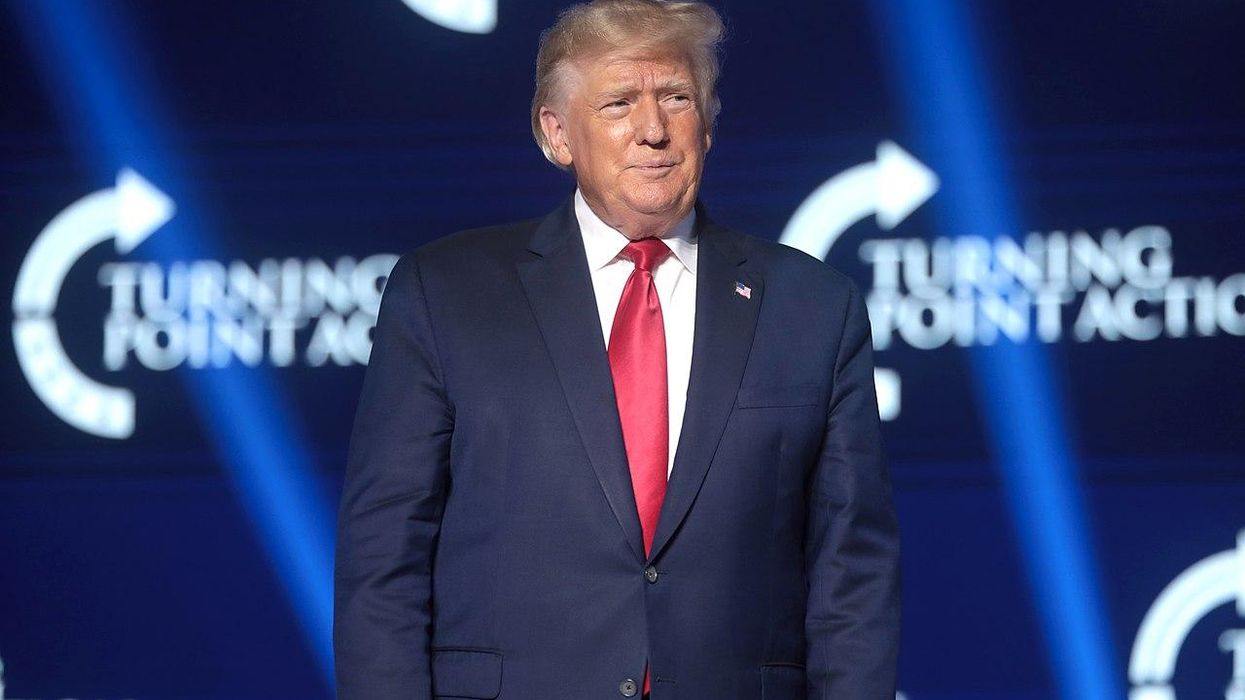'Uncomfortable how long it’s taken': Experts say slow pace of appeals court helps Trump

Former President Donald Trump speaking Tampa, Florida in July 2022 (Gage Skidmore)
January 31, 2024 | 01:06PM ETBank
Every day the DC Circuit Court of Appeals panel considering former President Donald Trump's immunity claim fails to issue a decision is a small victory for the ex-president and his legal team, according to some experts.
Judges Michelle Childs, Karen Henderson and Florence Y. Pan of the DC Circuit heard oral arguments on January 8 both for and against Trump's claim of absolute broad presidential immunity. During their questioning, judges seemed skeptical of Trump attorney John Sauer's assertion that a president couldn't be held accountable for any crimes unless he was impeached by the House of Representatives and convicted in an impeachment trial by the US Senate. However, they have not as of yet handed down a ruling on the subject more than three weeks later.
Matthew Seligman, who was a former DC Circuit clerk who is a co-counsel on an amicus brief filed by Republicans opposing Trump's immunity claim, told Politico that the full circuit is unable to apply pressure on a panel to expedite their decision.
POLL: Should Trump be allowed to hold office again?
"At this point, it’s uncomfortable how long it’s taken, but I don’t think you can look at it and say it’s, on its face, absurd," Seligman said. "I don’t think we’re really close to a point where the judges in the majority would consider taking whatever measures they could — and it’s not clear what those are."
Politico legal reporters Kyle Cheney and Josh Gerstein wrote that the clock is ticking on the DC Circuit panel, given that the former president has already indicated any ruling not in his favor would be appealed all the way up to the Supreme Court of the United States (SCOTUS), whose current term ends in June. Moreover, SCOTUS is already weighing the issue of Trump's disqualification from the Colorado ballot over Section 3 of the 14th Amendment (the insurrection clause) and a separate case from a January 6 defendant who is challenging the veracity of one of his felony charges — obstruction of an official proceeding.
Because Department of Justice special counsel Jack Smith has charged Trump with that same crime, SCOTUS' ruling in that case could potentially weaken Smith's indictment. And given SCOTUS' packed docket, if the Court did end up issuing a writ of certioari to hear the immunity appeal, it's likely a ruling wouldn't be issued until the Court's next term begins in the fall. Should Trump end up winning the election in November, he could theoretically appoint an attorney general who would dismiss federal charges against him, or even issue a presidential pardon to himself.
Trump's scheduled March 4 election interference trial in US District Court in Washington, DC will almost certainly be delayed, as Judge Tanya Chutkan has paused all proceedings until the immunity question is resolved. This means Trump's first criminal trial likely won't be until March 25 in Manhattan.